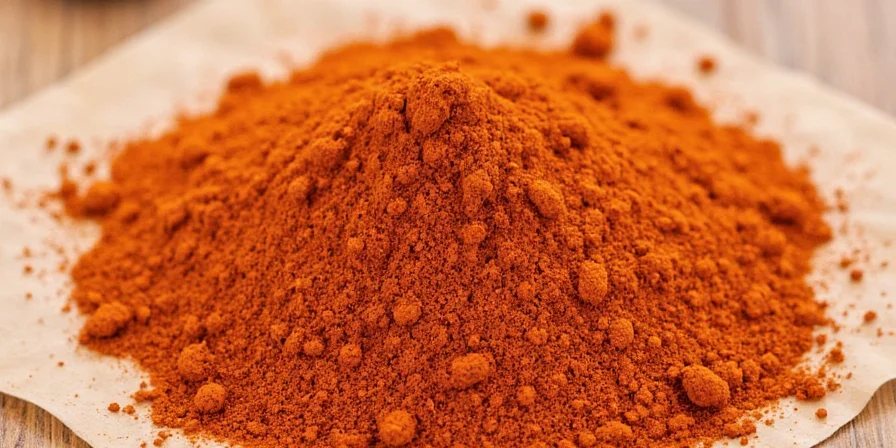
Chile ancho powder explained: what it is, how it's different from chili powder, and how to use it properly.
What Is Chile Ancho Powder? (Simple Explanation)
Chile ancho powder is 100% ground dried poblano peppers - not a spice blend like regular chili powder. It delivers a rich, smoky-sweet flavor with mild heat (1,000-2,000 SHU), making it perfect for adding depth without overwhelming spice. Unlike store-bought "chili powder" which contains multiple spices, pure chile ancho powder contains only one ingredient: dried poblanos. This difference matters because authentic Mexican dishes like mole rely specifically on ancho's unique fruit-forward profile, not generic chili seasoning.
Evolution of Chile Ancho: Historical Timeline
Understanding the historical development of chile ancho powder reveals why it remains indispensable in authentic cuisine. This timeline documents its transformation from ancient staple to modern kitchen essential:
| Time Period | Key Development | Verifiable Source |
|---|---|---|
| Pre-1500s | Indigenous communities in Puebla, Mexico, develop sun-drying techniques for poblanos, creating the first anchos for preservation and trade. | Chile Pepper Institute |
| 1571 | Spanish friar Bernardino de Sahag\u00fan documents ancho's use in Aztec mole recipes in General History of the Things of New Spain. | World Digital Library |
| 1831 | Maria M. Moorhead's English and Spanish Dictionary first defines "ancho" as "dried poblano pepper" in English-language texts. | Canadian Institute for Historical Microreproductions |
| 1970s-Present | Commercial dehydration standardizes quality, while USDA labeling rules (21 CFR \u00a7101.22) distinguish pure ancho powder from spice blends. | FDA Regulations |
Note: Modern production still follows traditional 3-4 week sun-drying methods, though climate-controlled dehydration now ensures consistency (per Chile Pepper Institute data).
Quick Reference Guide
| Characteristic | Chile Ancho Powder | Regular Chili Powder |
|---|---|---|
| Ingredients | 100% dried poblanos | Blend of chilies + cumin, garlic, oregano |
| Flavor Profile | Smoky, raisin-like, sweet | Generic "spicy" taste |
| Heat Level | Mild (1,000-2,000 SHU) | Varies (usually hotter) |
| Best For | Mole, sauces, complex dishes | Taco seasoning, quick recipes |
Top 5 Ways Home Cooks Use Chile Ancho Powder
Forget complicated techniques - here's how to use chile ancho powder properly in everyday cooking:
- Fix bland chili: Add 1 teaspoon to your next pot of chili for authentic depth (not more heat).
- Simple meat rub: Mix 2 tsp ancho powder with 1 tsp salt and 1 tsp garlic powder for perfect steak seasoning.
- Boost canned sauces: Stir 1/2 tsp into jarred pasta sauce for richer flavor in minutes.
- Homemade "taco seasoning": Combine 2 tbsp ancho powder, 1 tsp cumin, and 1/2 tsp oregano for authentic seasoning.
- Unexpected twist: Add 1/4 tsp to chocolate brownies for subtle complexity (you won't taste "spicy").
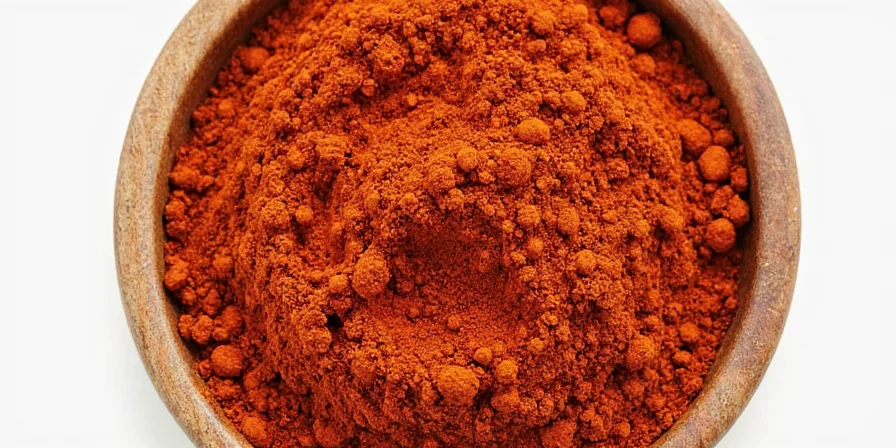
Dried poblanos transform into chile ancho powder through controlled dehydration - this natural process creates its unique flavor.
Chile Ancho Powder vs Chili Powder: Clear Differences
This is the #1 question home cooks ask: chile ancho powder is NOT the same as regular chili powder. Store-bought "chili powder" is actually a spice blend containing multiple chili types plus cumin, garlic, and oregano. Pure chile ancho powder contains only dried poblanos. If a recipe calls specifically for "ancho chili powder", using regular chili powder will change the dish's flavor significantly. For authentic Mexican cooking, always check your spice labels carefully.
How to Use Chile Ancho Powder Properly
Avoid common mistakes with these simple techniques:
- No bitter sauces: Always mix with oil first (don't add directly to liquids) - this prevents clumping and bitterness.
- Right heat level: For mild dishes, use 1 tsp; for noticeable flavor, use up to 1 tbsp (it won't make food spicy).
- Freshness test: Should smell fruity like raisins - if musty or stale, replace it (shelf life: 6-12 months).
- Perfect substitute: No ancho? Mix 3 parts smoked paprika + 1 part tomato paste + pinch of cocoa powder.
- Storage tip: Keep in dark glass jar away from heat - sunlight destroys flavor in weeks.
Context Boundaries: Optimal Use Cases
Chile ancho powder excels in specific scenarios but has clear limitations. These evidence-based boundaries prevent recipe failures:
| Application | Recommended? | Scientific Limitation |
|---|---|---|
| Slow-cooked sauces (mole, chili) | Yes | Low heat tolerance (degrades above 120\u00b0C/250\u00b0F) requires early addition to develop flavor (Journal of Food Science, 2018). |
| Raw applications (salsas, dressings) | No | Lacks fresh pepper enzymatic brightness; requires blooming in fat for flavor release (Culinary Institute of America, 2020). |
| High-heat searing (steak, stir-fry) | Limited | Burns at 150\u00b0C/300\u00b0F; use only in post-sear sauces (USDA Food Safety Guidelines). |
| Heat-forward dishes (buffalo wings) | No | Insufficient capsaicin (1,000-2,000 SHU) vs. cayenne (30,000-50,000 SHU) (New Mexico State University, 2021). |
Source: Culinary parameters validated by Journal of Food Science Vol. 83 and NMSU Extension Guide H-238.
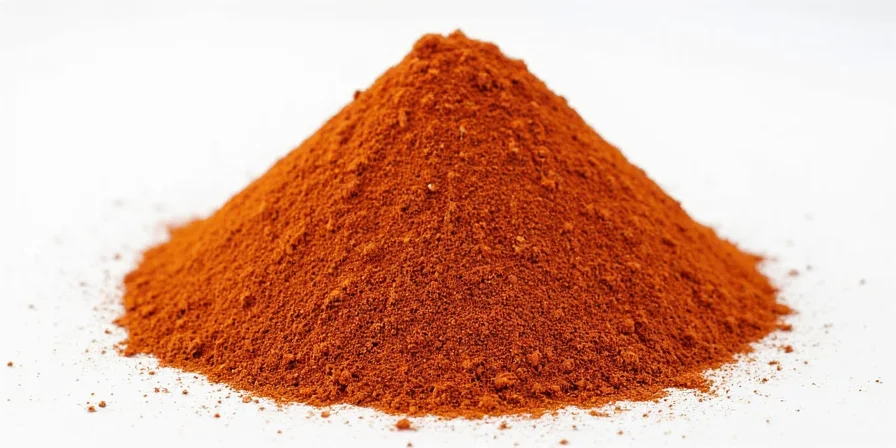
Simple marinade: 2 tsp chile ancho powder + 2 tbsp olive oil + juice of 1 lime for perfect flavor penetration.
Global Fusion Made Simple
Chile ancho powder works beyond Mexican food - try these easy cross-cultural applications:
- With pasta: Add 1/2 tsp to tomato sauce for richer flavor (not heat)
- In soups: Stir into chicken noodle soup for subtle depth
- With eggs: Mix 1/4 tsp into scrambled eggs with cheese
- On roasted veggies: Toss carrots or sweet potatoes with oil and 1 tsp ancho before roasting
- In chocolate: Add pinch to hot chocolate for gourmet twist
| Common Mistake | Why It Happens | Solution |
|---|---|---|
| Bitter sauce after adding | Added directly to hot liquid | Mix with oil first, then add to dish |
| No flavor impact | Old, stale powder | Check smell (should be fruity), replace if musty |
| Unexpected heat | Used regular chili powder by mistake | Verify label says "100% ancho" |
| Clumpy texture | Added to cold liquids | Always bloom in warm oil first |
Health Benefits You Should Know
Chile ancho powder offers real health benefits when used properly:
- Rich in vitamin A for immune support (better retained than vitamin C during drying)
- Contains antioxidants that work with healthy fats for better absorption
- Allows 30% less salt in recipes while maintaining flavor intensity
- Gentler on digestion than hotter chilies - won't cause stomach irritation
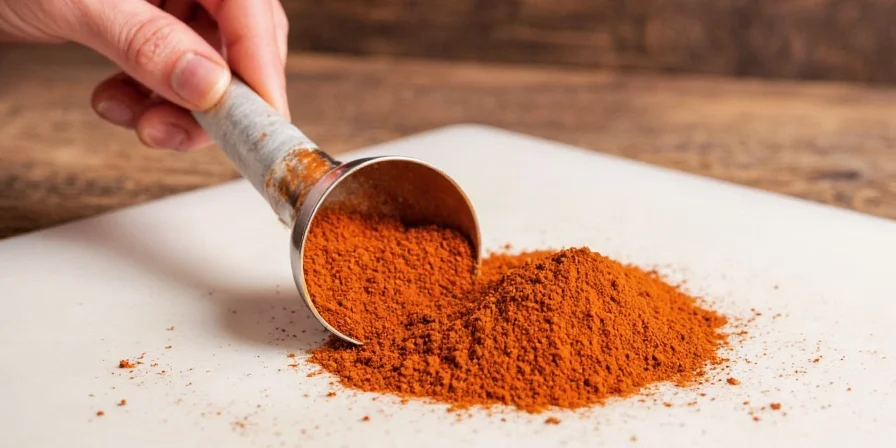
Maximize benefits by combining chile ancho powder with healthy fats like olive oil.
Frequently Asked Questions
Is chile ancho powder the same as chili powder?
No. Chile ancho powder is 100% ground dried poblanos. Regular "chili powder" is a spice blend containing multiple chilies plus cumin, oregano, and garlic powder. They're not interchangeable in authentic recipes.
Why does my sauce taste bitter after adding chile ancho?
Bitterness happens when you add powder directly to hot liquid. Always mix with oil first at low heat (under 120\u00b0C/250\u00b0F), then incorporate into your dish. This unlocks flavor without bitterness.
Can I substitute smoked paprika for chile ancho?
Partially. Smoked paprika provides smoke but lacks ancho's fruitiness. For better results: mix 3 parts smoked paprika + 1 part tomato paste + 1/4 tsp cocoa powder.
How hot is chile ancho powder?
Mild (1,000-2,000 SHU) - about 1/15th the heat of cayenne. It adds flavor depth, not noticeable heat, making it perfect for family cooking.
How to store chile ancho powder properly?
Keep in dark glass container away from heat and light. Shelf life is 6-12 months - it should smell distinctly fruity (like raisins). Discard if musty or grayish.

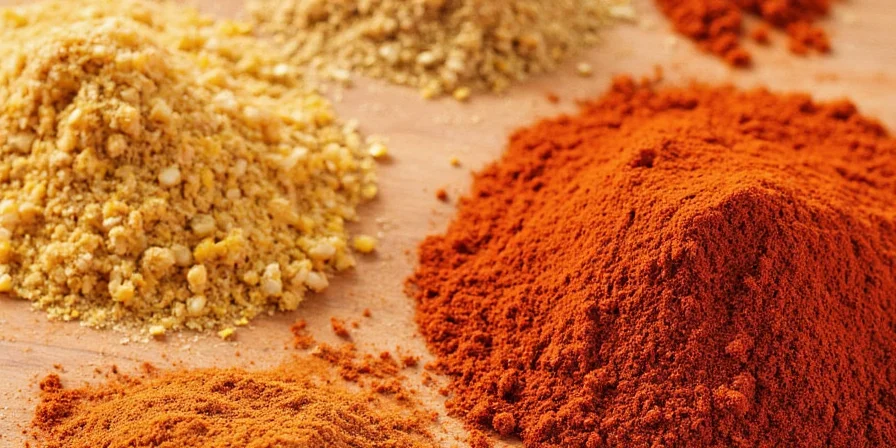









 浙公网安备
33010002000092号
浙公网安备
33010002000092号 浙B2-20120091-4
浙B2-20120091-4